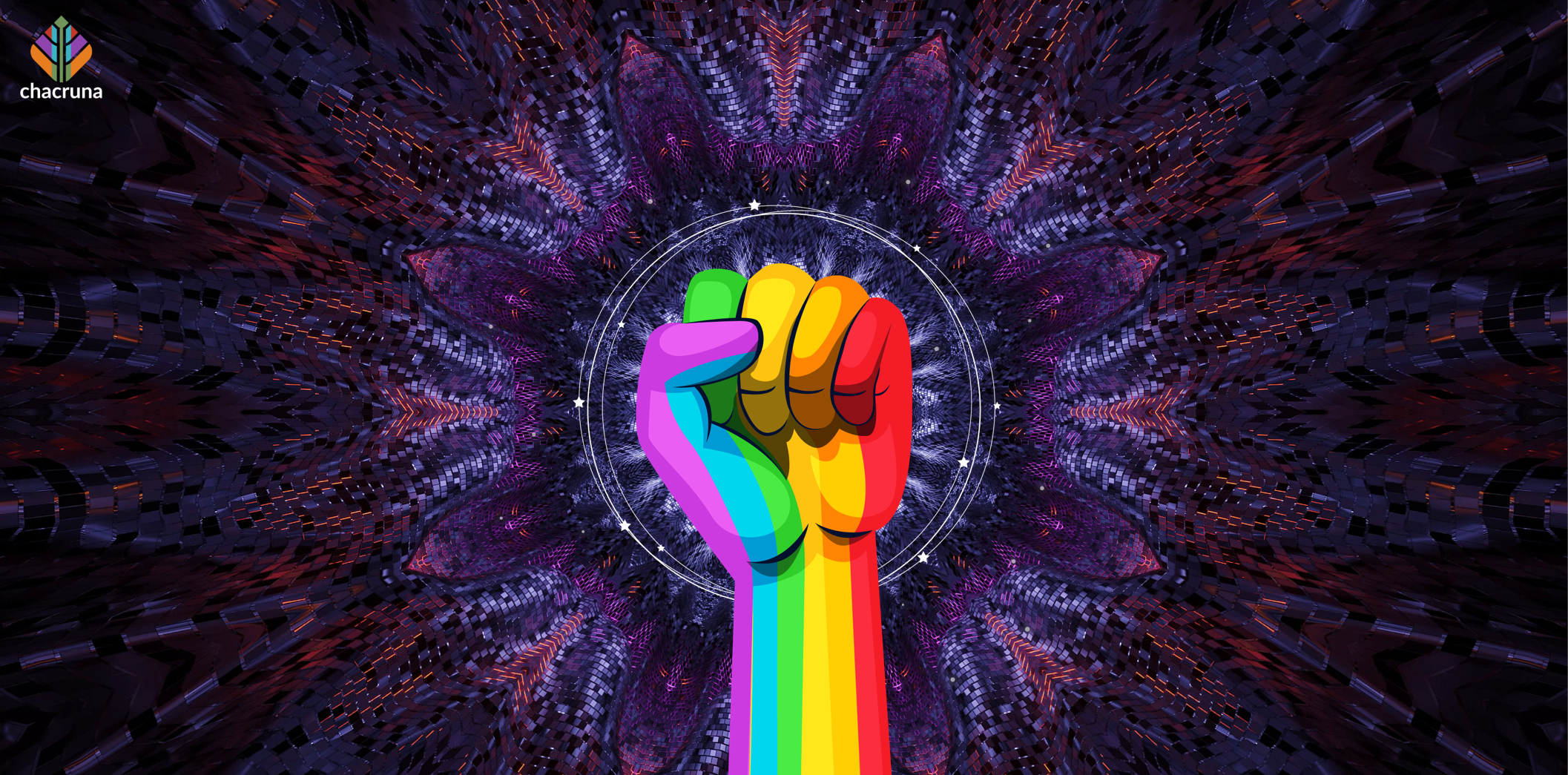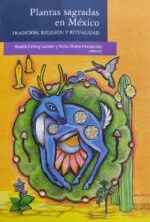- Marketing Internship (OPEN) - June 12, 2025
- Press Release – Chacruna Receives $150,000 Grant from Kindred Trust - June 10, 2025
- Events Production Internship (OPEN) - June 10, 2025
Editors: Alex Belser, Ph.D.; Clancy Cavnar, Psy.D.; Bia Labate, Ph.D.
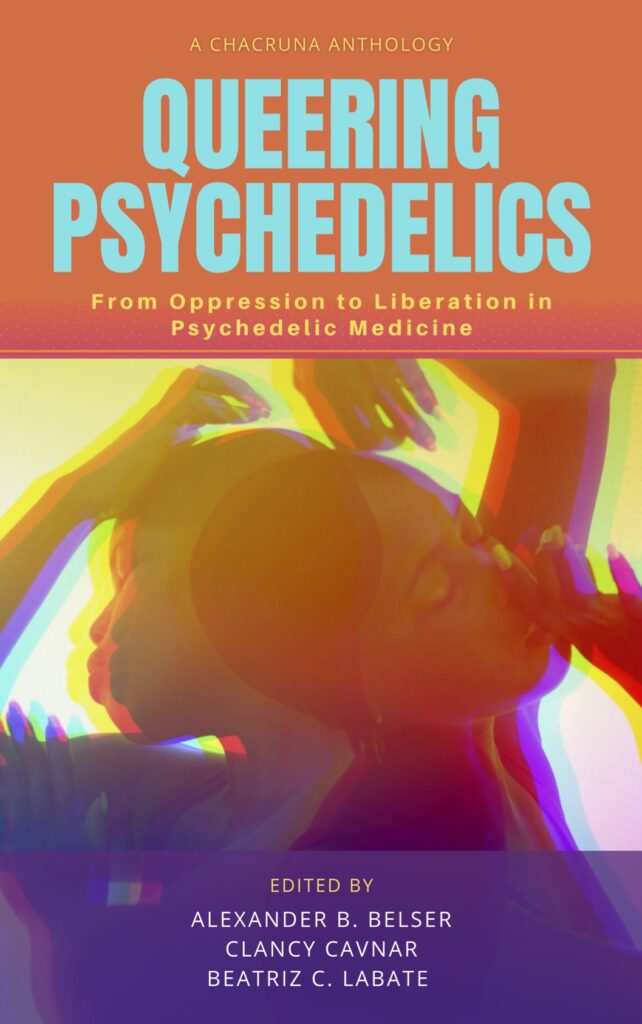
As the psychedelic resurgence reaches a pivotal moment of mainstream interest and regulatory legitimacy, Queering Psychedelics aims to foster accessibility and diversity in psychedelic science, practice, and discourses by addressing and dismantling sexist, heteronormative, transphobic, and homophobic forms of oppression in the psychedelic movement. This collected volume spans a broad range of perspectives from queer academic researchers, LGBTQIA+ clinicians, indigenous two-spirit activists, transgender autodidacts, and queer neo-shamans. Each chapter articulates essential insights on the cultural heritages, implications for current research and clinical work, and transformative healing potential of psychedelic medicine and queer identity.In probing a largely uncharted relationship, the book traces vast and colorful history of the enchanted, wayward, and weird as well as the concrete ways in which queer folk have fundamentally shaped the substance, style, and spirituality of the psychedelic movement, and been harmed by its heteronormative applications. Inclusive of the intersectional and liberatory applications of queerness, the volume integrates indigenous outlooks on psychedelics, gender roles, and identity and seeks to ally its struggle with those of other marginalized groups: women, people of color, the disabled, the poor, and people residing in the global south. The book also grapples with how modern psychedelic research might address the unique needs and traumas of sexual and gender minorities—populations that can suffer from challenging mental health conditions brought on by social exclusion, pathologization, criminalization, and stigmatization. Queering Psychedelics interrogates the continuing radical potential of queer psychedelia in today’s era of assimilation and increasingly codified and discursively managed identities paving the way for the movement’s liberatory potential for all people.
Published with Synergetic Press.
Anticipated Launch: December 2022
Editor’s Biographies:
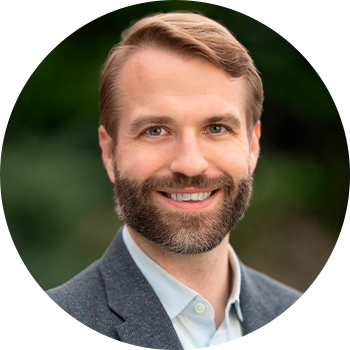
Alex Belser, Ph.D. is a psychedelic researcher and psychologist at Yale University. For the last 20 years, he has been a leader in the psychedelic clinical community, having served as an investigator on a number of clinical trials of psilocybin and MDMA to treat depression, anxiety, substance use, OCD, PTSD, and end-of-life distress. He is the Founding President of Nautilus Sanctuary, the first non-profit center for psychedelic medicine on the east coast. He serves as the Chief Clinical Officer of Cybin and was previously the Chief Clinical Officer of Adelia Therapeutics. Dr. Belser’s research has been featured on the front page of the New York Times, in the Atlantic, the New Yorker, The Guardian, and in Michael Pollan’s book, How to Change Your Mind. At Yale, Dr. Belser is investigating psychedelic treatments for OCD and depression. He worked as a therapist on studies of MDMA-assisted psychotherapy for the treatment of severe PTSD. He is a member of Chacruna Institute’s Women, Gender Diversity, and Sexual Minorities Working Group, where he works on issues affecting LGBTQIA+ people. Dr. Belser has authored over a dozen peer-reviewed journal articles and chapters and has given over fifty lectures, presentations, and Grand Rounds about psychedelic medicine. Dr. Belser studied at Georgetown University, the University of Cambridge, Columbia University, New York University, and Yale University. Dr. Belser trained at Bellevue Hospital, Mount Sinai Beth Israel Hospital, and New York Psychiatric Institute at Columbia University. He is a student of somatic practices and is a licensed kundalini and hatha yoga teacher. His writing is available at http://alexbelser.com. He maintains a private practice at http://centerforbreakthroughs.com.
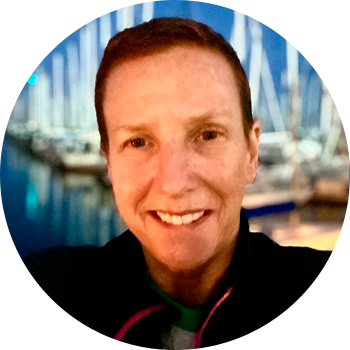
Dr. Clancy Cavnar has a doctorate in clinical psychology (Psy.D.) from John F. Kennedy University in Pleasant Hill, CA. She currently works in private practice in San Francisco and is Co-Founder and a member of the Board of Directors of the Chacruna Institute for Psychedelic Plant Medicines. She is also a research associate of the Interdisciplinary Group for Psychoactive Studies (NEIP). She combines an eclectic array of interests and activities as clinical psychologist, artist, and researcher. She has a Master of Fine Arts in painting from the San Francisco Art Institute, a master’s in counseling from San Francisco State University, and she completed the Certificate in Psychedelic-Assisted Therapy program at the California Institute of Integral Studies (CIIS). She is author and co-author of articles in several peer-reviewed journals and co-editor, with Beatriz Caiuby Labate, of eight books. For more information see: http://neip.info/pesquisadore/clancy-cavnar.
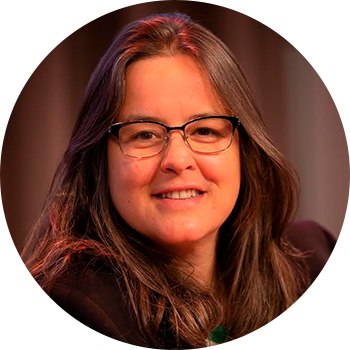
Dr. Beatriz Caiuby Labate (Bia Labate) is a queer Brazilian anthropologist based in San Francisco. She has a Ph.D. in social anthropology from the State University of Campinas (UNICAMP), Brazil. Her main areas of interest are the study of plant medicines, drug policy, shamanism, ritual, religion, and social justice. She is Executive Director of the Chacruna Institute for Psychedelic Plant Medicines (https://chacruna.net, https://chacruna-iri.org, https://chacruna-la.org) and serves as Public Education and Culture Specialist at the Multidisciplinary Association for Psychedelic Studies (MAPS). She is also Adjunct Faculty at the East-West Psychology Program at the California Institute of Integral Studies (CIIS) and Visiting Scholar at Naropa University’s Center for Psychedelic Studies. Additionally, she member of the Oregon Psilocybin Advisory Board’s Research Subcommittee, and Advisor at the Synthesis Institute. Dr. Labate is a co-founder of the Interdisciplinary Group for Psychoactive Studies (NEIP) in Brazil and editor of its site since. She is author, co-author, and co-editor of twenty-four books, two special-edition journals, and several peer-reviewed articles (https://bialabate.net).

Table of contents
Click on the chapter to read the description
From Oppression to Liberation: Organizing for Change
1. A Queer Vision for Psychedelic Research: Past Reckonings, Current Reforms, and Future Transformations
Alex Belser, PhD and Ava Keating
The rainbow skeletons in the closet of modern psychedelic research, not only a vestige of the 1950s and 60s, still threaten the fabric of today’s burgeoning psychedelic movement. This chapter presents a critique of the ways in which psychedelic research has failed LGBTQIA+ folks spanning conversion therapy, instantiated essentialized gender norms, queer exclusion, and fraught access to psychedelic study design and participation. It contends a queering of limited and exclusionary research metrics such as those that define a “mystical experience.” Psychedelic research is not ahistorical, apolitical, and inherently subversive to societal ills. Hegemonic and heteronormative modes of knowledge production will continue to perpetrate injustices baked into the dominant culture unless meaningfully challenged and transformed. We suggest an actionable course that seeks to further strengthen the clinical and cultural legitimacy of the psychedelic resurgence, better address the needs of LGBTQIA+ communities, and link the struggle for queer liberatory psychedelics to the plight of marginalized people everywhere.
2. Where is the love? Queerness and the State of Psychedelic Research
Amy Bartlett, LL.B., LL.M., Challian Christ, Stéphanie Manoni-Millar, Terence Ching, PhD
There is a renewed interest in the potential of psychedelics for psychological, physical, community and spiritual healing. However, after decades of criminalization and social stigma, there is a significant gap in academic research around these substances, and particularly when it comes to the intersection between psychedelics and the queer community. The research we do in academia reflects our priorities as a culture, and ultimately becomes the stories we tell as a society. Gender, identity and sexuality are common topics that come up in psychedelic healing journeys: in healing traumatic experiences, but also in exploring one’s relationship with love, the Earth and ‘Oneness’. However the research we do and the stories we are telling are missing out on this core narrative of the human experience. In this chapter, we present our preliminary observations drawn from an in-depth review of the available academic literature, which points to the severely underdeveloped state of research around queer psychedelic use. We present a call to action for researchers across all disciplines to become storytellers and engage in enriching our understanding of the queer psychedelic experience. Breaking the cycle of silence and stigmatization—both of psychedelics and of the queer experience—within psychedelic research will be key to unlocking the potential these substances hold for healing, well-being and human connection.
3. A Queer Response to Psychedelic Privilege
Ariel Vegosen
This chapter will explain and explore the concept of psychedelic privilege (a term I coined that addresses both the privilege in who has access to psychedelic therapy and privilege in the context of recreational psychedelic use) and how queer community is organizing to overcome this issue and create a pathway for access to psychedelic healing on our own terms. This chapter will highlight successful queer programs including Queerdome, the first ever queer-centered psychedelic harm reduction center, the workshop Drugs: The good, The Bad, and the Ugly, and queer psychedelic ritual and chaplaincy communities. This chapter will share specific ideas on how to address the unique needs and traumas of queer, trans, and non-binary community in psychedelic research and therapeutic healing. It will also address the complexity of self-medicating. In writing this chapter I will combine my knowledge as an expert in the field of justice, equity, diversity, and inclusion as well as my lived experience as the co-founder of Queerdome and as a queer non-binary person in the psychedelic movement. I will also bring in my experience and expertise as an ordained Kohenet Priestess in the Jewish tradition and the work I have done within multiple faith-based communities around spiritual psychedelic work and healing in the context of queer and trans community. I will also highlight solidarity work and working against cultural appropriation of plant medicines. This chapter will celebrate queer resistance, resilience, and our responses to psychedelic privilege.
4. A Consensual Discourse Dialogue
Courtney Watson & Emma Knighton
Courtney (she/they) and Emma (she/they) come together in conversation around the movement to queer the psychedelic space. This chapter is a transcript of their conversation, delving into topics such as the need for higher standards of consent, navigating and celebrating intersectional identities, and a call for moving beyond the gender binary in psychedelic-assisted therapy protocols and in the projection of the divine. The act of engaging in dialogue and presenting it as transcription is, in itself, an act of decolonizing and queering the academic space. Through this conversation Courtney and Emma invite deeper processing into how the psychedelic space could be more accessible to queer folks with a mosaic of identities and lived experiences, and how to expand our view on what living a psychedelically integrated life looks like.
5. Community Care: The Heart of Queer Psychedelic Liberation
Diana Quinn, ND
In the queer community, collectivism and interdependence have been foundational for generations, as a form of radical resistance to systemic discrimination and as a means of ensuring the survival of individuals and the broader community. While the role of group therapy in psychedelic medicine is still emergent, the benefits of group support – both professionalized and peer-led – are well established for enhancing core protective factors of well-being, such as empowerment, resilience, inclusion, and social support resources. Through a practice of community care within psychedelic spaces, queer people are reclaiming the radical roots of collectivism as a central principle of liberatory praxis. Community care takes many forms, including peer support, mutual aid, and healing justice. By applying these frameworks to psychedelic integration spaces, we support and affirm queer identities often stigmatized by the larger society. In this chapter we explore histories of community care in queer spaces, review the literature on psychedelic group integration, and hear perspectives from queer-identified people engaging in community care within psychedelics.
Psychedelic Conversion Therapy
6. LSD and Mescaline Psychedelic Conversion Therapies in Postwar North America
Andrea Ens
The past decade’s “psychedelic renaissance” has brought with it increased interest in the history of psychedelic therapies and growing recognition of the value of reading this past from a queer perspective. Queer approaches to this topic demonstrate these substances’ messy legacy for LGBTQ2S+ communities: while psychedelics have helped some queer users achieve self-acceptance and greater self-knowledge, they have also been historically used in harmful attempts to eradicate so-called “sexual deviancy.” In the postwar period, some American and Canadian conversion therapists tried to use lysergic acid diethylamide (LSD) and mescaline to eliminate their patients’ sexual attraction to the same sex and, in so doing, transformed drugs popularly associated with sexual liberation into tools supporting anti-gay social narratives. These “therapies” reflected Cold War-era anxieties about homosexuality, national security, the growing countercultural movement, and shifting gender roles. They also drew heavily from postwar North American psychiatrists’ distinctive faith in psychoanalysis and the transformative power of chemical agents in changing patient behaviors. Combined, these factors allowed psychedelic conversion therapy practitioners to position their practices as legitimate therapies that preserved heteropatriarchal hegemonic power structures, attracting patients who already felt sick, broken, and wrong due to their same-sex sexual desires. The history of North American psychedelic conversion therapies therefore encourages us to think carefully about what is at stake when we approach psychedelic medicines without regard for LGBTQ2S+ perspectives, identities, and needs over time. Mescaline, LSD, and other psychedelics have historically been weaponized against queer people to reinforce anti-gay social doctrines.
7. Psyched Straight: The Early Life of LSD as a Conversion Therapy Drug
Tal Davidson
In our collective memory of the 1960’s counterculture, psychedelics are associated with the radical re-evaluation of all social conventions. However, among early practitioners of psychedelic-assisted psychotherapy, heteronormativity remained outside the view of social analysis, heterosexuality retained its status as a tacit feature of psychological normalcy, and queer sexuality was constructed as a behavioral indication of psychological maladjustment. This chapter will discuss the application of psychedelics to historical iterations of “conversion therapy,” a category of practices intended to “convert” queer individuals to heterosexuality. In the 1960s and 70s, the psychedelic experience was theorized as a ballast for heteronormativity, exposing clients (usually men) to the intrapsychic instability that drove their homosexual encounters and re-centering them in their innate heterosexuality. Therapists such as Richard Alpert, Joyce Martin, and Betty Eisner used psychedelics and adjacent techniques to help men understand the psychodynamic basis of their homosexual urges and defined the success of therapy on the basis of their clients’ “restored” heterosexuality. This history serves as a vital reminder that despite their powerful capacities to heal trauma and inspire social change, psychedelics are embedded in a social context, and their use remains vulnerable to replicating structural violence.
8. High Dose Psychedelic Shock Therapy with LSD and Mescaline: The Conversion Treatment of a French Doctor on Two Homosexual Adolescents in the 1960s
Zoe Dubus
Before the widespread use of neuroleptics in the 1960s, the therapeutic model of post-World War II psychiatry was that of shock therapy: it consisted in disturbing the patient more or less violently in the hope of triggering a therapeutic reaction. Numerous techniques were developed in this sense since the 1930s, such as lobotomies, electroshock and insulin comas. It is thus in this therapeutic context that LSD and mescaline were first introduced: doctors considered them as tools to produce experimental psychoses and they were classified as “psychotomimetics”. If a part of the scientific community, notably the Anglo-Saxon community, progressively evolved this epistemological model based on shock, by developing psychedelic therapy, the French medical profession remained fixed in this paradigm. At that time in France, homosexuality was not only pathologized, but in the case of minors, considered a crime: adolescents were therefore condemned by the courts to be locked up in psychiatric hospitals in order to receive treatment aimed at forcing them to become heterosexual. In one of these institutions, Michel, 15, and Bernard, 18, described as “delinquent sexual perverts”, were subjected to repeated sessions during which doctors injected them with very high doses of psychedelics (up to 1200 mg for mescaline and 800 micrograms for LSD). The transcription of these sessions shows their anguish, their incomprehension in front of these violent treatments. This article will study these two unique cases of adolescents forced to undergo psychedelic shock conversion treatment and will illustrate the French therapeutic model in the use of psychedelics.
Queering the Clinic: Psychedelic Treatment
9. Queer Rejection, Isolation, and the Promise of Psychedelics
Matthew D. Skinta, Ph.D., ABPP
Research on familial rejection and minority stress over recent decades have pointed to the central role of relational ruptures at the heart of difficulties in life experienced by LGBTQ+ people. Loneliness and alienation can be painful, common aspects of queer and trans lives. Experiences that alternate concealment and rejection lead to rejection sensitivity, a pattern of interpersonal guardedness and a bias toward perceiving ambiguous responses as a cue for rejection. These shared histories can have a lifelong impact, as both friendships and romantic relationships are impacted by emotional armor and reduced vulnerability that become habitual. In turn, such behaviors may reduce the quality and beneficial effect of close relationships with others. Psychotherapy research has yielded a number of promising directions, and the therapeutic relationship may be a powerful context for change with a therapist with a strong relational orientation, though formal outcome studies are limited. Further, the attachment wounds resulting specifically from strong parental rejection may require lengthy treatment before an individual begins building strong, vulnerable and intimate relationships. Growing psychedelic research, however, suggests the strong capacity for growth, change, and flexibility precisely in these areas of experiencing closeness with others. From psychedelic therapy research on the treatment of PTSD to chronic depression, the effects of MDMA, psilocybin, and other psychedelics seem to align with minority stress processes that effect LGBTQ+ people. This chapter describes the centrality of relational work to queer healing, with an exploration of how psychedelics may facilitate this process, drawing from clinical, empirical, and personal experiences.
10. Unicorns & Stardust: A Case Report of Queering MDMA-Assisted Psychotherapy
Chris Stauffer, MD & Andrea Rosati, MD, PhD
Queer people navigating the metaphorical “closet” in heteronormative spaces often connect with each other via recognition and interpretation of non-verbal cues and symbols (e.g., a rainbow sticker on the window of a shop). Psychedelic therapy involves recognition and interpretation of non-verbal cues, somatic experiences, imagery, multiplicity, and other transpersonal experiences that present while immersed in non-ordinary states of consciousness. We outline a therapy case among a queer participant and two queer co-therapists within a Phase 3 clinical trial of MDMA-assisted psychotherapy for PTSD at the University of California, San Francisco. While each MDMA therapy case is unique, this case exemplifies the use of rich imagery and symbolism (e.g, the participant spontaneously explored a range of visualizations from an octopus’s garden in the deep sea to a numinous starfield). A permissive, playful, and safe therapeutic space was co-created, promoting self-exploration and a deepening connection to the Self. An ensemble of protective ‘parts’ of the psyche were vividly fleshed out and compassionately held throughout subsequent integrative psychotherapy sessions. Finally, this case models a departure from the long-held heteronormative assumption that co-therapists should reflect biological parents in order to maximize the therapeutic potential of transference phenomena.
11. Everything but the Kitchen Sink: Prescribing Psychedelics as Harm Reduction to Help Gay Men Quit Crystal Meth
John Haupert, NP
Crystal meth has been a scourge to the gay community for over 20 years. However, little to no progress has been made in improving treatment outcomes for meth abuse. To this day, there are still no FDA-approved treatments for stimulant abuse, and no medications have shown consistent evidence of efficacy for stimulant use disorder in clinical trials. Psychosocial treatments are the primary approach for stimulant use disorders, but even they have dismal long-term success rates. Through my work at one of the country’s largest LGBTQ+ health centers, I watched countless men sink deep into the abyss of meth addiction; it wasn’t uncommon to witness high-functioning, vibrant gay men in their 20s rapidly deteriorate into chronic meth-induced psychosis within less than a year. In this chapter, I propose that we consider psychedelics as powerful tools in the struggle against meth, both through psychedelic-assisted therapies and through harm-reduction techniques. Working in a harm-reduction model, I focus on addressing underlying issues associated with meth abuse, including gay loneliness, internalized homophobia, and trauma. Additionally, I suggest that we consider exploring certain psychedelics as safer alternatives to meth for individuals who are not interested or ready to stop engaging in chem sex.
12. The Quest for Queer Liberation: Ketamine-Assisted Psychotherapy and Shame
Shanna Butler, PhD and Laura Mae Northrup
The courage to embody and express one’s authentic self is a core psychological quest for many who identify as lesbian, gay, bisexual, transgender and/or queer (LGBTQ). Structural and individual expressions of homophobia and transphobia have created a social climate in which the core self of LGBTQ individuals remains under duress. For LGBTQ people of color multiple identity stressors exist that may impact one’s sense of self in the world. Internalization of homophobia and transphobia are an inevitability in a society whose foundation is imbued with white supremacy, colonization, and violence. A common emotional response emerging from life in such an oppressive landscape is shame. Shame results in limits to self-expression, policing of desire, invisibilizing identities, and even the urge toward self-annihilation. Ultimately, shame constricts life and is often a centerpiece in the psychological challenges of daily living for LGBTQ individuals. Ketamine-assisted psychotherapy (KAP) is rapidly gaining recognition in its ability to address treatment resistant depression, certain anxiety disorders, and more recently post-traumatic stress disorder. Ketamine is also uniquely situated to address shame incurred from internalized homophobia and transphobia through both its physiological and transpersonal effects. This chapter seeks to exemplify KAP’s potential for decreasing shame and increasing access to liberatory states of being. Through the introduction of a composite case KAP’s ability to transform internalized oppression into a more solidified sense of self will be explored.
13. Widening the Lens: Set & Setting in Queer Psychedelia
Jeanna Eichenbaum
The importance of set and setting in psychedelic work is time honored wisdom dating back to the beginnings of modern psychedelic research in the 1950s and 60s, and well before that in indigenous plant medicine work. How does the emphasis on setting (historically seen as aspects primarily related to the physical environment, sound, and the like) expand when we consider ideas such as transference and countertransference from the realm of psychoanalysis, as well as the importance of cross-cultural issues and cultural humility in working with the many people who are interested in psychedelics’ healing potential? Recent controversies related to boundary violations and abuses that have come to light are bringing increased focus on how therapy dyads are vetted and formed, as well as variables that might increase or threaten the safety (perceived and actual) of participants, and the impact of micro-aggressions, particularly while people are under the influence of powerful medicines. Members of the LGBTQIA+ community who participate in psychedelic work have particular needs in regard to the issues of safety and therapist resonance that have yet to be fully explored. Drawing on information gathered in researching the article “Queer Voices Speak to the New Psychedelia”, this article aims to widen that scope to explore these different issues and offer some ideas about how to structure the work and move forward in both psychologically and culturally sensitive ways.
14. Best Practices for Assessing Sexual Orientation and Gender Identity in Psychedelic Clinical Trials: A Proposed Assessment
Scott McKernan, M.A. and Alexander Belser, PhD
In current practice, investigators in psychedelic clinical research trials have largely neglected to implement affirming practices for sexual and gender minority (SGM) people. Researchers often do not ask participants for their pronouns and preferred names, do not assess for sexual orientation and gender identity, and do not report subgroup analyses by sexual or gender identities. To address these challenges, we provide a rationale for a standard assessment to be incorporated into emerging best practices for assessing sexual orientation and gender identity in psychedelic clinical trials. We also we propose a uniform 7-item assessment of sexual orientation and gender identity in psychedelic clinical trials, included in the appendix, as a step towards addressing the treatment needs for this underserved population. This would to enable systematic reviews and meta-analyses across multiple psychedelic trials to determine treatment effects for sexual and gender minority people.
Transgender and Gender-Diverse Psychedelic Experience
15. Transcending Dysphoria: Exploring the Novel Counter-Dysphoric and Life Saving Effects of Psychedelics in the Transgender Community
Sam Claude Carmel
In a series of one-on-one interviews with volunteer research participants, this chapter examines the transformative healing potential of psychedelics for the transgender community located in my own perspective as a psychedelic harm reduction activist and through the personal accounts of interviewees. Grounded in statistics of the immense discrimination and violence our community faces and in conversation with participants’ responses and my own experiences as a transgender person working with queer-centered psychedelic harm reduction spaces (Queerdome, Transguard SF), I seek to highlight the incredible trauma healing potential of psychedelic integration therapy and advocate for its accessibility and inclusion alongside gender affirming therapy for transgender people. With a research scope encompassing both clinical and underground psychedelic usage, this chapter seeks to highlight the novel counter-dysphoric effects psychedelics have for many trans participants and their ability to aid gender identity self-acceptance, alleviate depression, and avert suicide for this population. As a vulnerable group living through a worldwide genocide with historically disparate access to health care, employment, and housing, many transgender people including myself explore psychedelics and learn to heal ourselves through their use as a way to overcome trauma and manage our mental health when acceptable care is not available. Out of these self-experimentations, novel regimens and modes of care are being developed that have the potentiality to be included in the next generation of psychedelic therapy. New modalities of gender affirming psychedelic integration therapy are in desperate need of development and this chapter seeks to advocate for increased priority and access to queer-centering harm reduction, clinical care, and inclusion in psychedelic research for my community.
16. Gender Rituals and Gendered Ritual: Reflections of a Transgender Activist in the Psychedelic Community
Taylor Dahlia Bolinger
I posit that there is something inherently liminal in the transgender experience. Transition is an in-betweenness, as in a ritual. Before colonization, gender diverse individuals were conferred just these ritual significances by many societies. Elders in their tribes recognized and confirmed the identities of two-spirit people within their social context. Modern transgender people also rely on a system of elders, but in a world separate and parallel to cisgender society. This social support is frequently denied trans people, including within the main current of psychedelic spirituality. Psychedelic thought and ritual practice often rely on essentialized notions of male and female that exclude or even demean queer identities. However, the feeling of walking between worlds is one that is familiar to the psychedelic practitioner as well. Both psychedelic practice and transness are subject to deep taboos in mainstream society. If one is to be both psychedelic and transgender, one must live in multiple worlds, requiring an act of straddling, of singling oneself out, and making oneself vulnerable. Gender variant people, and gender-variant people of color particularly, embody much of the intergenerational trauma of colonization. Creating spaces for that trauma to come to the surface requires a sense of safety that must be specially cultivated. If the psychedelic community intends to heal the deeper traumas of our society, the colonized gender binary must be transcended.
17. A Patient’s Perspective on the Healing Potential of Psilocybin
PatientNB
In this essay I will share my personal experiences using psychedelic medicine in tandem with and as a guide for my work in therapy. The first time I used psychedelics in an intentional and mindful way was the first time I remember feeling the absence of shame. I was able to access a more real and authentic understanding of myself, without any pressure from the outside. I was assigned female at birth, but as a kid I really just wanted to be a boy. I quickly started to receive messages from society, from the media, and more specifically from my family, that this desire and this part of myself was not okay. Through the work I have done in therapy and with the assistance of psychedelics, I have realized that my “self” can only be felt from the inside. It cannot be co-constructed by others who are on the outside. Learning how to embrace this newfound inner freedom while also navigating the pushback from those around me has been at the center of my integration work.
18. Integrate with Me: A Story of Queer and Trans Liberation through Entheogenic Therapy
Tristan Angieri
This chapter is an intimate exploration of how after living socially hamstrung by severe PTSD symptoms, I transformed my life and relationships through MDMA Therapy and recursive integration, in which telling my story is an act of integration itself. In 2021, I released Integrate.Me, a short documentary portraying my lived experience outside of the gender binary as I participate in a MAPS-sponsored MDMA Therapy Clinical Trial to treat PTSD. The film’s mission is to advocate for entheogenic therapy, harm reduction, and drug policy reform as transformative tools for communal healing by connecting them to my own personally vulnerable story. In this chapter I expand upon the insights in the film, emphasizing the ways in which my experiences in therapy and ongoing integration—including creating the film itself—allow me to deeply witness and celebrate the aspects of my queer and trans experience I once found most difficult to embrace and share.
Race, Intersectionality, and Psychedelics as Liberatory Tools for LGBTQIA+ folks
19. 火 + 木: An Intersectional Experience of MDMA-Assisted Psychotherapy
Terence H. W. Ching, PhD
As academic, clinical, and public interest in the ±3,4-methylenedioxymethamphetamine (MDMA)-assisted psychotherapy research program for chronic posttraumatic stress disorder (PTSD) grows, cultural barriers to minority participation persist. In 2020, I published an open letter to ethnic/racial and sexual/gender minorities (SGM) regarding my intersectional experiences during an MDMA-assisted psychotherapy training trial (Ching, T. H. W. (2020): Intersectional insights from an MDMA-assisted psychotherapy training trial: An open letter to racial/ethnic and sexual/gender minorities. Journal of Psychedelic Studies, 4, 61-68.). The goal of that publication was geared toward destigmatizing this treatment for SGM people of color and catalyzing public imagination about the utility of this treatment for diverse communities. In this chapter, I expand upon my original insights, with an emphasis on cultural pride, LGBTQIA+ pride, and acceptance of intersectionality.
20. Queer Identity, African Diasporic Spirituality, and Intersectional Healing through Psychedelic Medicine
Kaston Anderson-Carpenter, PhD
The intersection of sexuality and race presents a particularly complex experience for Black queer individuals. In addition to navigating society through the lens of their identities, they may also experience multiple types of trauma simultaneously. For many Black queer individuals, spirituality offers a refuge from the oppressive systems that contribute to their negative experiences. African spirituality offers a holistic framework that affirms Black queer individuals not only as the children of continental Africa, but also as valued members within the spiritual communities. For Black queer individuals living in Western societies, the historical and generational traumas are especially problematic for their health and well-being, yet psychedelic medicine has been shown to contribute to lower levels of maladaptive behavior in clinical settings. This chapter examines the role of psychedelic medicine in the context of African spirituality to support healing for Black queer individuals.
21. A New Standard: The Urban Heroic Dose of 10g
Behike Sensei Kevon Simpson
The BIPOC urban community are currently presented with threats in our ever-shifting world. This chapter aims to uncover what happens when said populations are given back their ancestral tools of transformation and ritual. It highlights the ancient power of that which has come to be known under its umbrella term shamanism. Specifically, this chapter also aims to show the safety of high dose mushroom work beyond the 10 grams range, and how initiation into it can help the release of traumas presented by the ongoing systemic limitations on marginalized people. As BIPOC LGBTQIA+ populations are amongst the most marginalized, this paper focuses on their specific challenges, and how to rise above them.
Psychedelics and LGBTQIA+ Self-Acceptance
22. Out of all the boxes: How Psychedelic Experiences Empower and Affirm Queer Worldviews
Kate Kincaid
This article will explore how Non-Ordinary States of Consciousness (NOSC)—specifically psychedelics—can be ripe opportunities for systematically disenfranchised people (women, LGBTQIA+, BIPOC) to experience gender embodiment, sexual liberation and self-empowerment. Clinical implications and personal vignettes about the use of psychedelics will be explored and illustrated. Using her own stories as well as those of friends and clients, Kate will explore the common themes surrounding gender and sexuality that come up during psychedelic experiences as well as practices that can help build resilience and empower, despite existing in a system that seeks to actively strip women, gender and sexual minorities of their power.
23. Can Psychedelics Queer You Up? How They Helped Me Embrace Fluidity
Valentin Somma, PhD
By bringing in new perspectives, psychedelic experiences can give subjects their first felt sense of the role the society they grew up in had in shaping their sexual identity—from their parents’ choice of language to the internalization of arbitrary social norms, biases, and prejudices. Building on my own anecdotal experience, I show how psychedelics may encourage more exploration and self-acceptance for the fringe of individuals whose sexuality could easily pass as heterosexual to others or to themselves. One mechanism through which this might happen is the lessening of an often unconscious internalized homophobia, which in turn leaves more room to embrace fluidity with a felt sense of safety.
24. How Psychedelics Can Guide the Transformative Journey of Polyamory
Justin Natoli, JD, LMFT
In my work as a psychotherapist, I have found few opinions that feel as personal or divisive as those around monogamy and polyamory. I hold a mindset that different arrangements work better for different people, and what works best may change over the course of one’s life. However, I also observe that institutions of power put monogamy on a pedestal in the post-industrial world. The result is a queering of other healthy forms of relationship that limits the love we share as a human family. My intention with this paper is to help balance the scales. In it, I explore how polyamory is not necessarily about having multiple sex partners. Instead, it is a transformative journey that challenges us to remove the barriers that limit our capacity to give and receive love in all its manifestations. Unfortunately, this can be easier said than done. Through interviews and my own clinical work as a psychotherapist, I will identify the three primary struggles I have observed along the polyamorous journey: shame, past trauma, and difficulty transcending labels. I will also discuss how psychedelics can help guide us through those struggles so we can increase the love available in our lives.
Ayahuasca, Santo Daime, and Queer Psychedelic Spirituality
25. A Two-Spirit Approach to Psychedelics: Honoring Indigenous Identities and Decolonizing Gender and Sexuality
Marca Cassity & Katherine A. Costello, PhD
Marca and Katherine engage in a conversation about the intersection of homophobia and transphobia with White settler colonialism, and the importance of psychedelic spaces and practices becoming supportive of the 2SLGBTQIA+ community through the work of decolonization. Marca begins by sharing their personal journey of healing homophobic and transphobic trauma through plant-spirit medicine ceremonies and mystical healing experiences. A Two-Spirit member of the Osage nation, they highlight the ways in which this healing has been inextricable from honoring their Native heritage and being more active in their tribe. Katherine then reflects on how settings and practitioners can help facilitate this kind of healing by being mindful of the fact that systemic oppression, and hence liberation, occur on three interrelated but distinct levels: the structural (e.g., social, political, economic, legal structures), the interpersonal, and the intrapersonal. She also argues that White people turning to Indigenous cultures to find evidence of gender nonconformity can easily become another act of colonization that invisibilizes the long history of gender-nonconforming people in Europe and thus participates in the racist colonial fiction that White Europeans are gender normative while colonized/BIPOC people are gender deviant —a fiction that has been instrumental to White supremacy. She invites White people who want to be queer and trans allies to recognize and challenge that binary and its determining role in the current global, Eurocentric, capitalist order.
26. Reflections on Spirituality, Gender, and Power in my Experience with Santo Daime
Clancy Cavnar, PsyD
This chapter looks at the experience of being a queer American woman in a traditional Brazilian ayahuasca church. The author recounts her time in the community of Céu do Mapiá, the Amazonian home of the international branch of Santo Daime, beginning in 1997. She talks about how her orientation-affirming experiences in ayahuasca ceremonies contrasted with the negative view of homosexuality she heard expressed in the community. The author discusses how this led her to write her dissertation on gay people’s experience with ayahuasca and its effect on their perception of identity. The view of sexuality of Brazilians versus Americans is contrasted and a sexual scandal involving a Padrinho in the church and the way it was handled are referenced as background for the evolution of the author’s understanding of the effect of culture and religion on psychedelic experiences. The influence of television and the acceleration of contemporary influences on the religious community, leading to greater freedom in dressing and behavior, are presented as evidence that change is possible even in such traditional settings. The chapter concludes with some thoughts on the dangers of mystification and superstition and the hope that the messages in the hymns of the church that calls for unity and equality among all people are put into practice, with the value of each person recognized.
27. Ayahuasca and Gender in Brazil: An Interview With Sociologist Dr. Pietro Benedito – Are Homophobia and Transphobia sacred?
Beatriz C. Labate
In this interview, anthropologist and ayahuasca researcher Bia Labate asks sociologist Pietro Benedito, also an ayahuasca researcher, about topics that remain still largely taboo in ayahuasca circles in Brazil, mainly in the context of the Santo Daime tradition, but among other groups as well. These include: gender definitions, the construction of the “sacred feminine,” conversion therapy, cross-cultural challenges, the specific needs of LGBTQIA+ people, the place for transgender folks in rituals, and so forth. The interview is a result of ongoing academic and activist events, friendship, and collaboration among fellow Brazilian researchers who have been in conversation trying to advance awareness within religious ayahuasca circles. It is hoped that this interview helps more people fully embrace themselves and their gender and sexuality, as well as serving as a call for more research in this area.
28. Sacred-Species-Social Reproduction
Zach Levine
This article draws on my long-term research with the formally-described “quantic spiritual healing” of prisoners inside the Rondônian state corrections system. While elsewhere I write about carceral sexuality and the serpentine nature of desire within prison-worlds of control, criminalization, shame, and patriarchal heterosexism, here, I confront Rondônian’s Santo Daime worlds head-on, focusing on homophobia and the reproductive unconscious of entheogenic exchange. I focus on sex, sexuality, and sexual discourses, as well as the ways these fluidic forces unearth themselves in integration’s strange half-lives. I show how sacred, social, and species reproduction are assembled together as the subtle ideological hammer of Daimista trabalhos, carrying along pre-conceptual preferences for human sexuality that ritual “dissolves.” In the common task of making home as souls inside these human bodies, queers fight a second uphill battle—against the corporeal constraints of culture and the ubiquitous contaminations of “wisdom” that lodge inside spirits as powers-over, governing the proper course of how an embodied soul should look and act. As pioneers of this work of fleshing out the immateriality both of souls within bodies and of subjects rendered invisible by the symbolic order, queers would seem like just what the shaman ordered—sculpted essences of saturnine personhood—but ritual reveals otherwise. Release into the orgiastic sea of instincts unravels a story not of compromising sexual exchange but of contaminating sexual desires, suggesting how unconscious readings of species imperatives constrain notions of sacred dissolution, and pointing to the ritual as a transpersonal battleground of rival campaigns against contamination.
Sexuality, Psychedelics, and Queer Pleasure
29. Reclaiming Ecstasy: A Radical Queer Perspective on The Power of Pleasure in Psychedelic Healing
Dee Dee Goldpaugh
The current body of literature and emerging data on psychedelic-assisted therapy focuses on the efficacy of psychedelics to treat specific mental disorders including depression, addiction, and post-traumatic stress. In an effort to distinguish the “serious” work being done in the current psychedelic era from the free love-infused environment of the 1960s, a key attribute of the psychedelic experience is rarely discussed in the current discourse, the transformative power of pleasure. Psychedelics can occasion a full mystical experience, assist the user in directly confronting trauma or maladaptive behaviors, but psychedelics can also offer a direct experience of being fully embodied (or re-embodied), of sensuality free from shame, or ignite an experience of the erotic. This chapter will explore how queer people and communities can self-actualize and heal through personal and collective expressions of joy, ecstasy, embodiment, and erotic pleasure using psychedelics. Queer identity exploration is inherently linked to curiosity, shape shifting, and centering the erotic over the generative. Queering the narrative around psychedelics means acknowledging the power of play, sensuality, and eroticism as equally important to the healing process as confronting trauma or addressing symptoms. This chapter will include both clinical observations from the author’s work with clients as a psychedelic integration psychotherapist in the LGBTQIA+ community as well as the author’s own journey to healing and developing a positive relationship to their queer, non-binary identity through ecstatic experiences with entheogens.
30. Queering Psychedelic Erotics: Encounters with the Inhuman and Nonhuman
Alex Dymock, PhD
The study of sexual encounters involving the use of has tended to center on their potential as instruments of personal transformation and for the enhancement of sexual intimacies between humans. But what of psychedelic erotic encounters with the inhuman and nonhuman? Indeed, how might we encounter erotic experiences between the human and psychotechnologies themselves? Drawing on 30 semi-structured interviews with participants who had experimented with sex-related drug use, and recent queer thought on the relationship between posthumanisms and becoming-queer, this chapter interrogates the potentials of psychedelic sex as queer praxis. Findings from the study reveal that, while some participants’ experiences fell within what are now established narratives of enhanced communication and connectedness with other humans, for others, psychedelics enhanced erotic connectedness principally with other objects, materials and technologies.
31. Dungeons of Perception: How the Psychedelic and Kink Community Can Learn from Each Other to the Benefit of the Queer Community
Denise Renye, PsyD
The elements of an intentionally orchestrated psychedelic journey have a great deal of overlap with a sensitively planned kink/BDSM (bondage/discipline, dominance/submission, and sadism/masochism) scene. Both yield deep possibilities for exploration of the psyche, trauma healing, and embodiment. If conducted in a well-educated manner, both can offer a deeper connection with self and others. A phrase used often in the psychedelic world, “set and setting”, helps to frame both a psychedelic journey and a BDSM scene. There is a preparation and an agreement among all parties regarding what they are about to experience. Consent is imperative. With a solid container that creates a sense of safety for the participants, a great deal of healing has the potential to occur. Having a safe space has been an important part of healing for the LGBTQIA+ community, especially in the light of historical abuse, marginalization, and discrimination. When safety is prioritized in the spaces of psychedelia and BDSM, it can provide arenas for an increased sense of embodiment along with self-acceptance and more positive body image. With both psychedelics and a kink scene there is a deep-dive experiential journey with transformation potential. Following the journey or experience comes the integration aspect or aftercare, without which the psychedelic journey or kink/BDSM experience will lack meaning and gravitas. Through the use of clinical and classroom examples to illustrate points, this piece explores how the trajectory of play and journeying can facilitate safety, an increased sense of self, and a deeper understanding of the mystical element of life.
Expansive Queer Psychedelic Phenomenology
32. Mushrooms, Magick and Wilderness: Radical Queer Group Psilocybin Rituals
joie wolfw-m-n
joie wolfw-m-n has been participating in, co-creating, and facilitating group psychedelic experiences in rural and wilderness settings since 1984, and doing so in specifically queer settings since 1990. This article will detail the history of these communities in psychedelic ceremony, how they are co-created and structured, and how they have specifically helped queer and trans people integrate and heal from traumatic personal and cultural experiences, as well as have deeply spiritual experiences. Many of the communities referenced developed rituals with psychedelic exploration in the face of the aids epidemic and its impact on marginalized cohorts. They will discuss the use of psychedelics in processing grief, both personal and collective, as well as the incorporation of psychedelics into the death experience. Also explored are adaptations that can be made to accommodate a widely variable range of ceremony participants (3-600 people) grounded in localized community culture and intention.
33. Connecting to Queer-Inclusive Mythologies for Psychedelic Integration
Kile M. Ortigo, PhD and Daan Keiman
Psychedelic experiences, both in psychotherapeutic and other contexts, are often characterized by a spiritual, mystical, or other worldly quality. As such, diverse spiritual experiences and themes are frequently interwoven not only in psychedelic journeys themselves but also in the larger collective narratives and practices of many psychedelic communities. Historically, however, many religious and spiritual institutions have propagated both explicit and more subtle forms of discrimination against LGBTQ+ people. These discriminatory belief systems and practices have not only directly harmed many people but also have complicated their relationship to the deeper existential and spiritual questions that drive many people’s explorations of non-ordinary states of consciousness. This chapter explores general guidelines for queering traditional mythological and spiritual frameworks of meaning making and connection. Chief among these recommendations is an open exploration of the often gender essentialist and heteronormative ideas that have heavily influenced early and modern psychedelic culture in the West. Themes of this chapter include the critical importance of acknowledging ambiguity and complexity while utilizing archetypal concepts and narratives that support journeyers in imbuing deeper meaning to their personal experiences.
34. The Psychonaut, the Rapist and the Rainbow
Ayesha Hussain
The eradication of rape culture depends on one thing—the evolution of queerness. The evolution of queerness is galvanized with psychedelic medicine. This piece explores sexual identity as part of the integrated whole casting aside the long-kept separation from the rest of identity. Dissolving the dissonance between those who have become their sexuality and those who refuse to admit it. A new dawn is emerging and with it, the next step in a collective sexual consciousness creating harmony amongst us all. As we dismantle the heteronormativity rut of destruction and separation, it is time to further break the mold. The future is polyamory and pansexuality, a world based on individual uniqueness, abundant love, the essence of a soul, relationships free of specification on genitalia, reproduction and orientation. In this chapter, I argue mass psychedelic sexual awakenings will return us to a child-like state of wonder and awe, one that does not separate by gender, race, cultural differences, monogamist/marital structures and allows us to lead with our sensorium of pleasure, rewiring us towards what makes happiness thrive. Tapped into that creativity, the world will flourish and a new paradigm will arise. This is a call to queer folk in our evolution, let us take the next step and love one another, rid our own communities of the division that exists and welcome the majority of the world into themselves.
Author’s Biographies
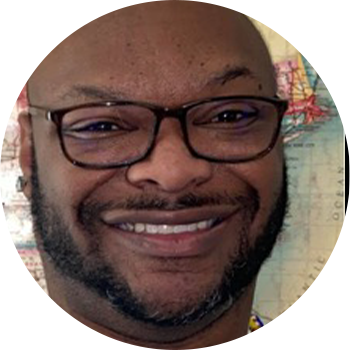
Dr. Kaston D. Anderson-Carpenter is a Black gay scholar and follower of the Lucumí faith. He is an Assistant Professor of Psychology at Michigan State University. A behavioral psychologist by training, he also holds master’s degrees in public health, experimental psychology, and applied behavior analysis. His work specializes in substance use and social determinants of health in marginalized and underserved communities. As a Board Certified Behavior Analyst (BCBA-D) and licensed behavior analyst, he works with clients experiencing addiction and trauma.
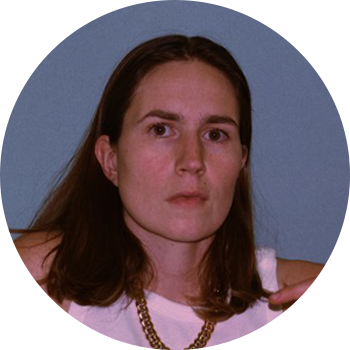
Tristan Angieri is a Brooklyn based multi-disciplinary artist, director, and educator. Their directorial debut is Integrate.Me, a POV Spark Otherly short documentary made for Instagram Stories and co-produced by POV, American Documentary and The National Film Board of Canada. Integrate Me explores Tristan’s participation in a MAPS sponsored MDMA Therapy clinical trial to treat PTSD, as they learn to navigate being queer and trans. Tristan holds a Master of Architecture from UC Berkeley.
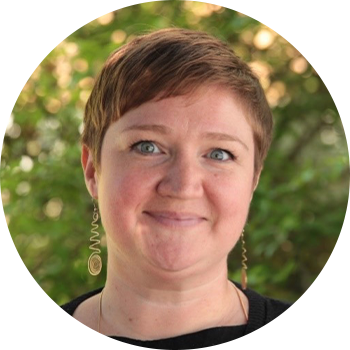
Amy Bartlett, LL.B., LL.M., is a curiosity enthusiast, legal professional and NGO geek working on her PhD at the University of Ottawa. Her research explores the role that mystical experiences play in psychedelic healing, and her interests include community building, diversity and inclusion and psychedelic integration. She helps coordinate the Ottawa Psychedelic Education Network (OPEN) amongst other projects. Before returning to school, she worked for over 15 years as a social justice advocate both in Canada and abroad.

Dr. Alex Belser is a psychedelic researcher NYU and Yale University. He is an editor of Queering Psychedelics: From Oppression to Liberation. He has investigated psilocybin and MDMA to treat depression, anxiety, substance use, OCD, PTSD, and end-of-life distress. He is the Chief Clinical Officer of Cybin and served as Chief Clinical Officer at Adelia Therapeutics. He is co-author of EMBARK, a psychedelic-assisted psychotherapy model. He studied at Georgetown University, the University of Cambridge, Columbia University, NYU, and Yale University. His website is http://alexbelser.com.
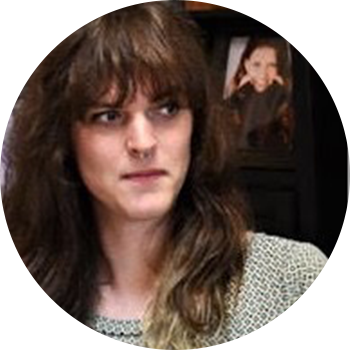
Taylor Dahlia Bolinger began sitting for her friends as a teen while they processed the trauma from growing up queer in Texas. The acceptance she eventually found at regional Texas burns led her to embrace her identity as a transgender woman. Taylor co-founded Decriminalize Nature Dallas, is studying to become a social worker, and works with homeless LGBT young people. Her goal is to become a professional integrative therapist, work with minorities, and advocate for access to plant medicine.
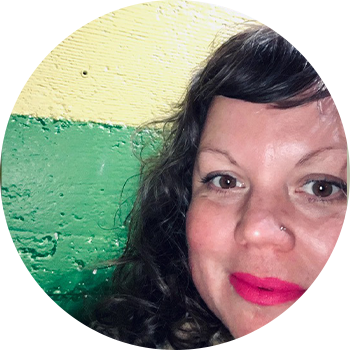
Dr. Shanna Butler, PhD (she/her) is a Licensed Psychologist in private practice offering depth, somatic, and psychedelic psychotherapy. Dr. Butler is a co-founder of Sage Institute for Psychedelic Psychotherapy as well as assistant professor at California Institute of Integral Studies. Dr. Butler’s research interests pertain to archetypal and alchemical theories of gender identities, psychedelic psychotherapy, trauma recovery, and the use of ritual in therapeutic spaces.
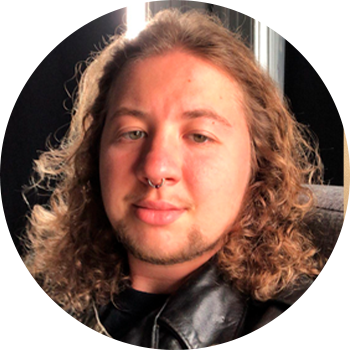
Sam Claude Carmel is a queer, transgender multi-media conceptual and installation artist, curator, writer, and researcher based in San Francisco with a B.A. in Queer Artist Studies from Mills College. They are the founder of Liminal Space SF, San Francisco’s first trans-centering art gallery, and proud to be a team member of Queerdome and co-founder of Transguard SF. Sam currently works for the Oakland LGBTQ Community Center as a peer crisis counselor.
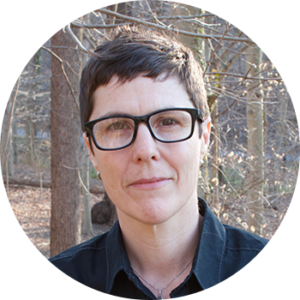
Marca Cassity, BSN, LMFT (Osage) is a two-spirit trauma therapist specializing in Native American, queer, and transgender-related trauma. They are trained by MAPS in MDMA-assisted psychotherapy and are part of two MDMA-assisted psychotherapy research studies, one with gender minorities and one with veterans.

Clancy Cavnar, PsyD, has a doctorate from John F. Kennedy University in Pleasant Hill, CA. She is in private practice in San Francisco, and is Co-Founder and a member of the Board of Directors of the Chacruna Institute for Psychedelic Plant Medicines. She has a master of fine arts from the San Francisco Art Institute, a master’s in counseling from San Francisco State University, and she completed the Certificate in Psychedelic-Assisted Therapy program at the California Institute of Integral Studies. She has published 10 books. co-edited 10 books.
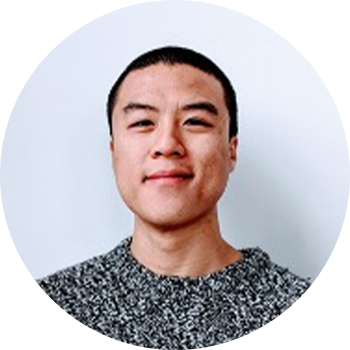
Terence H. W. Ching, PhD, is a postdoctoral associate at the Yale OCD Research Clinic. He has professional interests at the intersections of anxiety- and trauma-related disorders, diversity and equity, and psychedelic-assisted psychotherapy. Terence is also dedicated to improving access to psychedelic research and clinical programs for historically excluded groups.
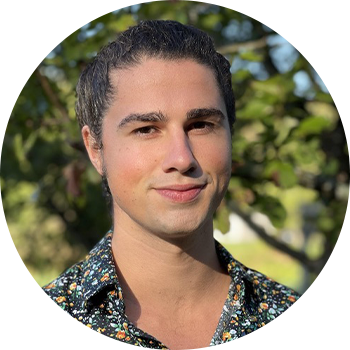
Challian Christ is a graduate student at the University of Ottawa. His research is primarily focused on psychedelics, lived religion, and psychospiritual healing. Through his research, he aims to cultivate spiritual literacy among Western psychedelic practitioners and develop novel therapeutic approaches to psychedelic-assisted therapies grounded in contemplative practices, ecological integration, and cross-cultural exchange.
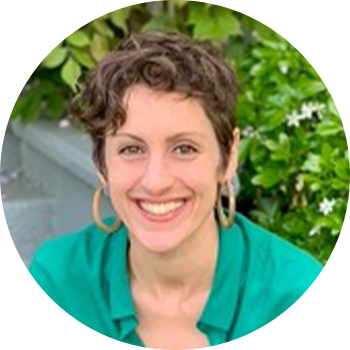
Katherine A. Costello is a diversity, equity, and inclusion trainer and consultant, as well as a life and relationship coach serving the LGBTQIA2S+, poly, and psychedelic communities. She received her PhD in 2016 from Duke University, where her research focused on the transnational travel of feminist and queer theories. She continues to study and publish on the intersection of feminist, queer, and transgender theories.
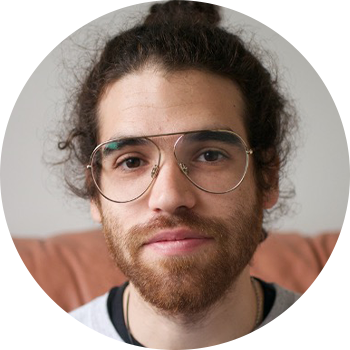
Tal Davidson is a PhD student in the Historical, Theoretical, and Critical Studies of Psychology program at York University in Toronto. His current work explores Ecopsychology as a framework that combines social and ecological justice with personal healing and psychotherapeutics. He is also a long-time member of Psychology’s Feminist Voices, a digital archive and oral history project of feminist psychology. When the sun goes down, Tal is a multi-instrumental performer and recording artist with a focus on jazz and improvised music.

Zoë Dubus is a PhD student in contemporary history at TELEMMe in the University of Aix-Marseille in France, and a research associate at the Institut des Humanités en Médecine, Centre hospitalier universitaire vaudois, in Switzerland. She studies the transformations of medical practices and health policies in relation to the use of psychotropic drugs (morphine, cocaine, and LSD). She is a member of GeFeM, a university research group on gender, and a founding member of the French Psychedelic Society.
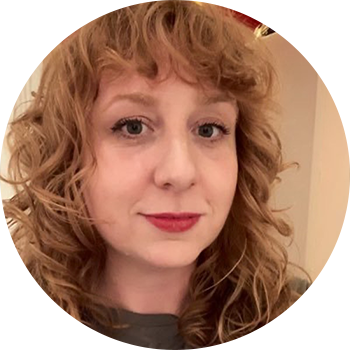
Alex Dymock, PhD works at Goldsmiths, University of London in the Department of Law. She is in the early stages of a research project funded by the British Academy/Leverhulme Trust entitled The Sexual Politics of the Psychedelic Renaissance. This follows previous research investigating the historical and contemporary relationship between processes of pharmaceuticalisation of sexuality and recreational drug use. She has published work from the latter study in the International Journal of Drug Policy and articles for Wellcome Collection and Chacruna.
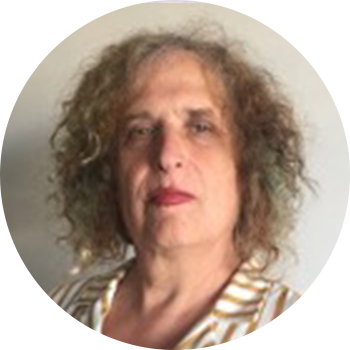
Jeanna Eichenbaum (LCSW) is a psychotherapist based in San Francisco, CA, with a focus on working with the queer community. In addition to her private practice work, Jeanna works at Healing Realms Center doing ketamine assisted psychotherapy. A graduate of UC-Berkeley’s Masters of Social Welfare Program, Jeanna completed the Certificate Program in Psychedelic-Assisted Therapies and Research from the California Institute of Integral Studies in 2018. You can read Jeanna’s additional articles about queer psychedelia on the Chacruna Website.
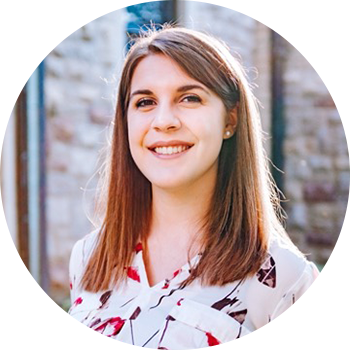
Andrea Ens completed her MA in History at the University of Saskatchewan in 2018 and is currently a doctoral student in History at Purdue University. Her master’s thesis describes the experiences of twelve same-sex attracted men given LSD- and mescaline-assisted conversion therapy at Hollywood Hospital in British Columbia between 1955 and 1973. Her scholarly interests broadly include the history of medicine, psychiatry, sexuality, and psychedelics in twentieth-century Canada and United States.
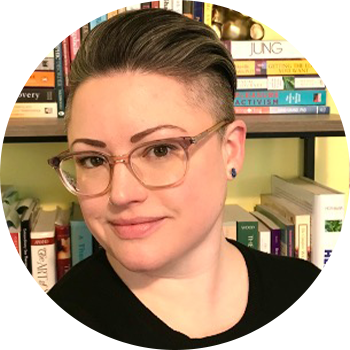
Dee Dee Goldpaugh, LCSW (they/them/theirs) is a psychotherapist in private practice in Woodstock, New York specializing in sex therapy, trauma, spirituality, psychedelic integration therapy and Ketamine-Assisted Psychotherapy with LGBTQIA+ clients. Dee Dee has written and presented widely on the topic of psychedelics and sexuality, queer identity, trauma, and pleasure. They are the Community Support and Integration Director of the Hudson Valley Psychedelic Society and a member of the KAP Team at the Woodstock Therapy Center.
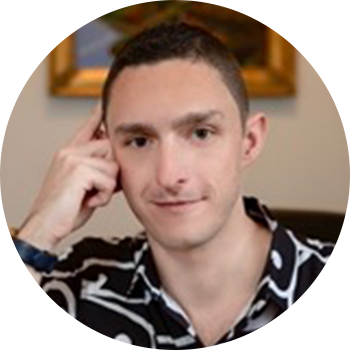
John Haupert is a psychiatric nurse practitioner specializing in harm-reduction, trauma, and working with the LGBTQ+ community in San Francisco, CA. John completed his master’s in nursing at Boston College while doing specialized graduate training at the VA. John spent three years working and training at the country’s preeminent LGBTQ+ clinic, Callen-Lorde Community Health Center in NYC. Since 2009, John has dedicated his career to working with marginalized communities. Additionally, John is passionate about psychedelic medicine and is trained in ketamine-assisted psychotherapy.

Ayesha Hussain is a visionary, clinical sexologist and experience designer specializing in pleasure. As a queer, woman of color who has navigated sexual trauma, her ultimate purpose to eradicate rape culture employs psychedelics, storytelling and connection.
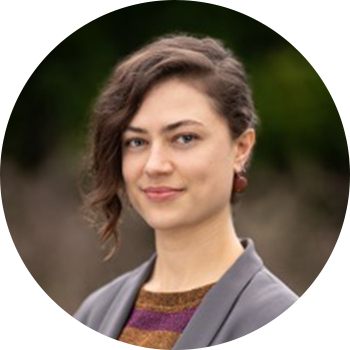
Ava Keating is a queer community organizer, yoga teacher, and somatic therapist-in-training. She was on the founding team of AIMS Institute, an integrative medical clinic among the first to provide high dose ketamine-assisted therapy to patients on Medicaid. She has contributed to several unionization and collective organizing efforts with warehouse and grocery-retail workers, low-income tenants, unhoused cancer patients, and radical wealth redistribution networks. She received a BA from Oberlin College and is a student in Seattle University’s Master of Existential-Phenomenological Psychology program.
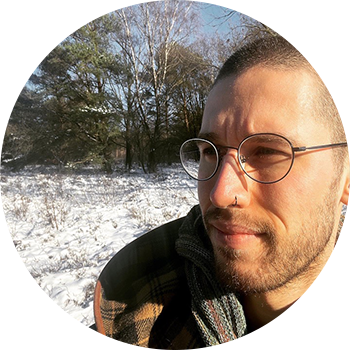
Daan Keiman holds an MA in Spiritual Care and has a private practice as Buddhist and interfaith ‘Psychedelic Chaplain’. He worked in mental health and addiction care and (psychedelic) drug harm reduction, before dedicating his time to supporting both individuals and groups preparing for, moving through, and integrating psychedelic experiences. Daan primarily works with queer folks, Buddhists, and those that are ‘psychedelic naive’. He is currently developing a relational, somatic and morally oriented model for psychedelic chaplaincy.
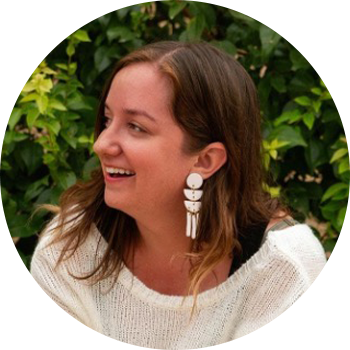
Kate Kincaid, LPC (she/her) is a queer mother and licensed mental health therapist. She runs a group private practice in Tucson, AZ (Tohono O’odham & Yaqui land) called Tucson Counseling Associates that specializes in accessible therapy for LGBTQIA+ people, ethically non-monogamous people and psychedelic therapies. Her therapeutic style is informed by intersectional feminism and social justice, seeking to collectively dismantle systems of violence and oppression and help generate a future where everyone has more access to freedom, safety, pleasure and joy.
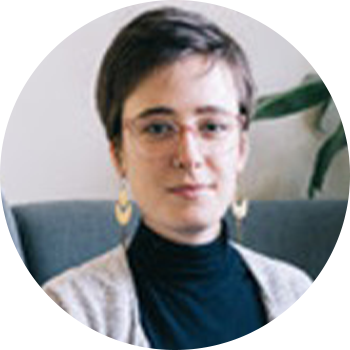
Emma Knighton (she/they) is a white, queer, able-bodied femme. She is a somatic trauma therapist, psychedelic integration therapist, and embodied organizer. In their clinical work, Emma specializes in working with folks with complex PTSD from childhood abandonment, neglect, and sexual abuse. Her approach is grounded in queer, consent, and feminist theories and she works from an anti-oppression lens. She believes that integration is a life-long practice, and strives to live life with integrated spirit and body.

Dr. Beatriz Caiuby Labate has a Ph.D. in social anthropology from the State University of Campinas (UNICAMP), Brazil. Her main areas of interest are the study of plant medicines, drug policy, shamanism, ritual, religion, and social justice. She is Executive Director of the Chacruna Institute for Psychedelic Plant Medicines, Public Education and Culture Specialist at the Multidisciplinary Association for Psychedelic Studies (MAPS), and Adjunct Faculty at the East-West Psychology Program at the California Institute of Integral Studies (CIIS). She has published 24 books.
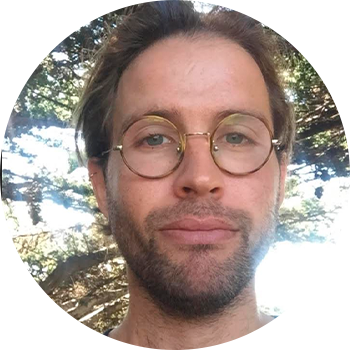
Zach Levine is a PhD candidate in Cultural Anthropology and Feminist Studies at Duke University. He received his B.A. in Anthropology from Columbia University. His research focuses on incarceration, ayahuasca, and spiritual healing in the Brazilian-Amazônian state of Rondônia, where he has conducted extensive fieldwork between Spiritualist and ayahuasqueiro communities and the state prison system since 2016. His broader work asks how entheogens, namely ayahuasca, trouble and make newfound sense of carcerality, ethics, and power.
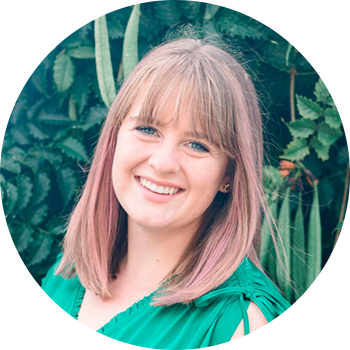
Stéphanie Manoni-Millar, B.A., is a Community Researcher at the Center for Research on Educational and Community Services and is currently completing her PhD Psychology at the University of Ottawa. Her research utilizes both qualitative and quantitative methodology. Her primary focus is on youth, resilience, and marginalized populations. She values interdisciplinary research and collaboration. Stephanie aims to use research to inspire community growth and amplify the voices of marginalized communities in order to support access to services and basic necessities.
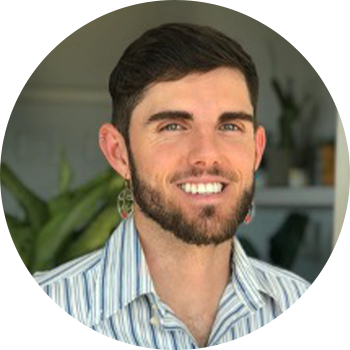
Scott McKernan is a doctoral student in Clinical Psychology at The New School. His research uses psychobiological methods to study trauma and minoritized groups experiences. Currently, his research focus on the questions: how is discrimination similar and different from acute and chronic trauma? And is discrimination a form of trauma exposure? In the future, Scott intends to use psychedelic-assisted psychotherapy to treat minoritized individuals with trauma and/or substance use disorders.
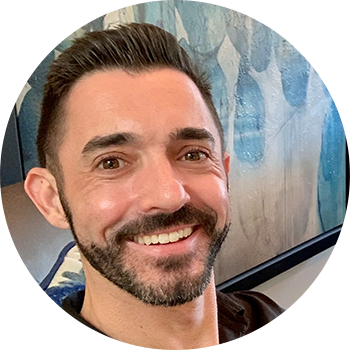
Justin Natoli, JD, LMFT (he/they) is a psychotherapist, workshop facilitator, Hakomi practitioner, and ketamine-assisted therapist in Los Angeles, CA. In their private practice, Justin specializes in depth and somatic psychotherapies, trauma, addiction, sex and intimacy, personal growth, psychedelic therapy and integration, and working within kink, poly, LGBTQIA+, and creative communities. Justin received a JD from the UCLA School of Law and a Master’s in depth psychology from the Pacifica Graduate Institute.
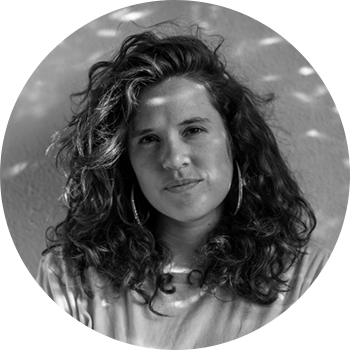
Laura Mae Northrup, MFT is the creator and host of the podcast Inside Eyes, a series that explores the use of entheogens and psychedelics to heal sexual trauma. She is the author of the book Radical Healership (North Atlantic Books, Feb 2022) and is a practicing psychotherapist and educator in Oakland, CA. Her work focuses on defining sexual violence through a spiritual and politicized lens and supporting the spiritual integrity of our collective humanity.
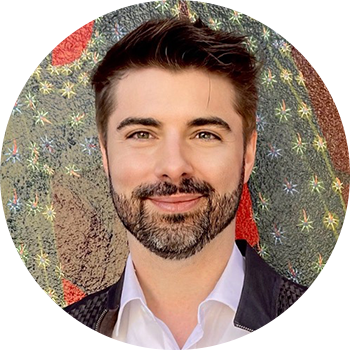
Kile Ortigo, PhD, is a clinical psychologist and certified psychedelic psychotherapist at the Center for Existential Exploration in Palo Alto, where he offers depth-oriented psychotherapy and integration services. Dr. Ortigo serves on advisory boards of Psychedelic Support and Project New Day and recently, has published his second book, Beyond the Narrow Life: A Guide for Psychedelic Integration and Existential Exploration, with a foreword by psychedelic luminary, Dr. Bill Richards.
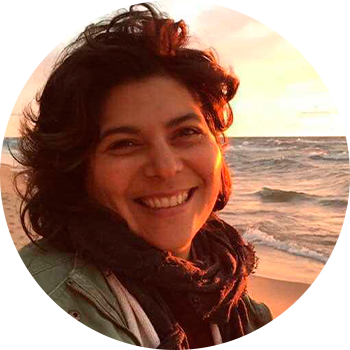
Diana Quinn ND (she/her) is a queer Chicana, licensed naturopathic doctor, and healing justice practitioner. She co-founded the Psychedelic Liberation Collective, offering integration circles for BIPOC and the 2SLGBTQIA+ community, and anti-racism resources. Dr. Quinn is a trainee of the CIIS Psychedelic-Assisted Therapies and Research program. She is a member of Chacruna’s Racial Equity and Access Committee, and sits on multiple boards and advisory committees focused on justice, equity, diversity and access (JEDI) in psychedelics.
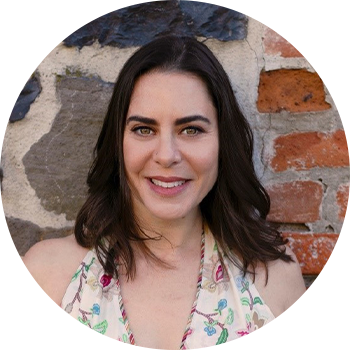
Dr. Denise Renye is a licensed clinical psychologist, certified sexologist, executive consultant and coach, certified yoga therapist, and psychedelic integrationist. She has specialized training in and has worked directly with people in the areas of sexuality, relationships, states of consciousness, psychedelic integration, and intimacy. She holds a Master’s degree in Human Sexuality from Widener University (Philadelphia), as well as a Master’s degree and a Doctoral degree in Clinical Psychology from the California Institute of Integral Studies (San Francisco).
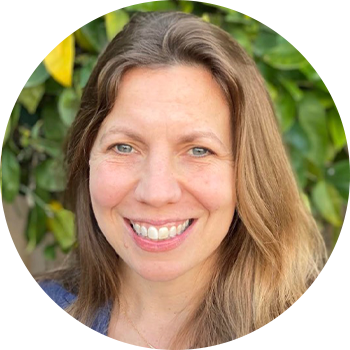
Andrea Rosati, MD, PhD is an Assistant Professor of Psychiatry at the University of California, San Francisco. Since 2018, she has served as a Study Therapist and Study Physician on the Phase 2 and 3 clinical trials of MDMA for PTSD. She is also a psychiatrist at Polaris Insight Center in San Francisco, where she is a provider of ketamine-assisted psychotherapy for psychiatric disorders.
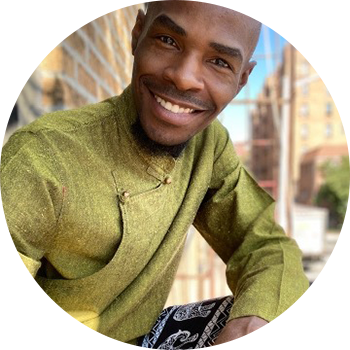
Behike Sensei Kevon Simpson is boundary transcending psychonaut who doesn’t remember what a box is. He is native to the concrete jungle of Brooklyn, NYC, and the beautiful island of Jamaica. He is initiated into and trained extensively in the art of Peruvian curanderismo with Ayahuasca, Huachuma, and other plant medicines. One night in the Bronx a decade ago, the mushroom told him to become a shaman, and life hasn’t been the same since.
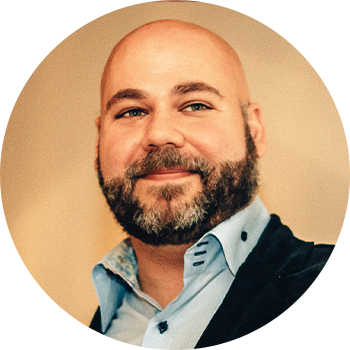
Matthew D. Skinta, Ph.D., ABPP, is a board-certified clinical health psychologist and assistant professor at Roosevelt University. Dr. Skinta co-edited Mindfulness and Acceptance for Gender and Sexual Minorities: Contextual Strategies to Foster Self-Compassion, Connection, and Equality (2016), and recently authored Using Contextual Behavior Therapy with Sexual and Gender Minority Clients: A Practical Guide to Treatment (2020). He has trained therapists working with MDMA and psilocybin in the use of both Acceptance & Commitment Therapy and Functional Analytic Psychotherapy.
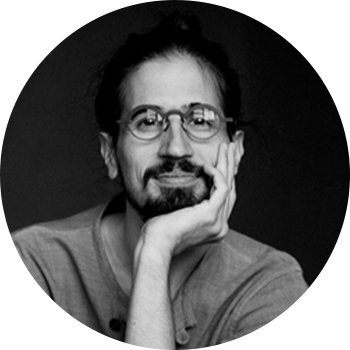
Valentin Somma, Ph.D. is an intimacy coach helping others connect more deeply with their inner parts and their partners. He holds a PhD in Economics from Columbia University and is a former management consultant. His own mental health journey had him stumble upon mindfulness, neo-tantra, IFS, and psychedelics—including in therapeutic settings. Today, he works with his clients one-on-one, writes, and facilitates workshops on consent, communication, growth, movement, and more. He is also an avid dancer and meditator.
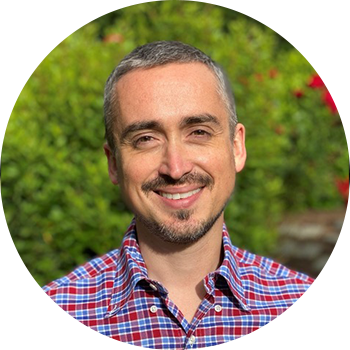
Chris Stauffer, MD is Associate Professor of Psychiatry at Oregon Health & Science University, is dual board-certified in Psychiatry and Addiction Medicine, and is Director of the Social Neuroscience & Psychotherapy (SNaP) Lab, which aims to research psychotherapy in combination with social psychopharmacology—e.g., oxytocin, MDMA, psilocybin. Dr. Stauffer serves as a Supervisor for MAPS Public Benefit Corporation’s MDMA Therapy Training Program.
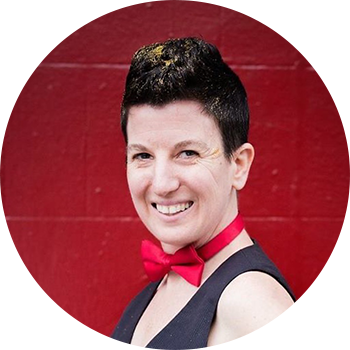
Ariel Vegosen is a professional justice, equity, diversity, inclusion workshop facilitator, consultant, writer, educator, ordained Kohenet ritualist, coach, performer, and public speaker. Ariel is founder and director of Gender Illumination, CEO of Shine Diversity, co-founder of Queerdome, and ONCA Foundation Trainee. For over 20 years Ariel has facilitated workshops all over the world for corporations, non-profits, faith-based organizations, and psychedelic therapists. Ariel is proud to be queer, loves to play with pronouns, and brings joy into all aspects of life. Email: [email protected]
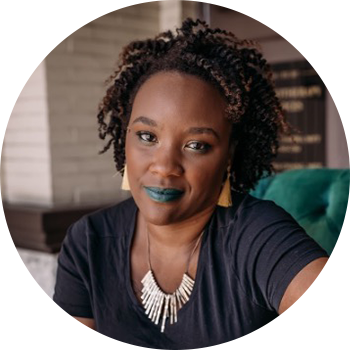
Courtney Watson is a LMFT & AASECT Certified Sex therapist. She is the owner of Doorway Therapeutic Services, a group practice in Oakland, CA focused on addressing the mental health needs of BIPOC, Queer & TGNC folx. Following the direction of her ancestors she’s incorporated Ketamine-Assisted Therapy into Doorways’ offerings and stresses the importance of Queer/BIPOC providers offering these services. In 2021 Courtney founded Access to Doorways (501c3), which raises funds to subsidize the cost of KAP for QT/BIPOC clients.
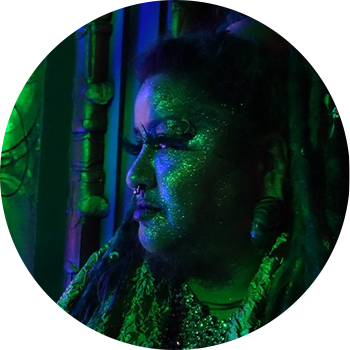
irRev. joie wolfw-m-n irreverent joie wolfwmn is autodidactic, a hospice priest & caregiver, counselor & entheoguide. they are queer, trans, filipina and romani. s/he doesn’t like hierarchies created by capital letters. zie founded the holy order of the epicene, a spiritual order for people who live and perceive deity as outside of polarised spectrums. h.o.e. is currently working on cofacilitating a queer retreat center in northern california.
Take a minute to browse our stock:
Did you enjoy reading this article?
Please support Chacruna's work by donating to us. We are an independent organization and we offer free education and advocacy for psychedelic plant medicines. We are a team of dedicated volunteers!
Can you help Chacruna advance cultural understanding around these substances?


